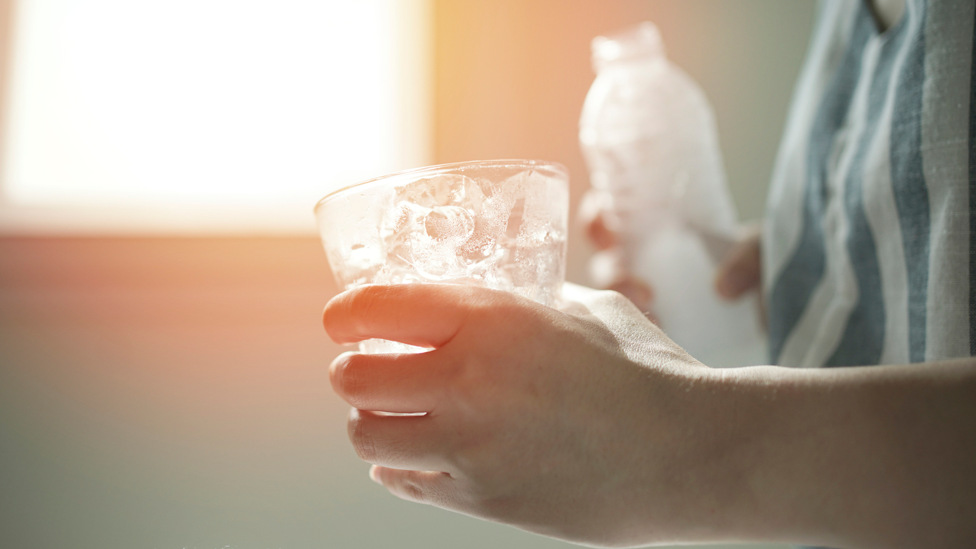Cumbria's A&E departments report increase in dehydration cases
- Published

Health bosses are warning of the risks of dehydration after seeing a rise in people seeking medical help
Emergency departments across north Cumbria have reported a "marked increase" in the numbers of people needing help due to dehydration.
Medical director Dr Adrian Clements said drinking "plenty of water" was the best way to avoid it.
It comes as the county experiences a spell of warm, dry weather.
The NHS says risks of being dehydrated can have serious implications, particularly for elderly or frail adults and children.
North Cumbria Integrated Care said it had seen an increase from the expected average of nearly 13% in the number of attendances for patients aged 65 and over.
It added that it was seeing "similar numbers this week", with consultants observing "people are suffering from conditions that have come about because of dehydration".
Dr Clements said it was "critical" children and frail and elderly people drink plenty of fluids
Dr Clements said: "Drinking plenty water is the most effective way for adults to avoid dehydration. If you are sick, take little sips often."
However, he issued a word of caution: "Infants and small children who are dehydrated shouldn't be given large amounts of water alone.
"This is because it can dilute the already low level of minerals in their body too much and lead to other problems. Instead, they should be given diluted squash or a rehydration solution, available from pharmacies."
He added that friends of "frail and elderly" people should check in to ensure they were coping with the heat, and offer foods with a high water content such as soup, ice cream and fruits like melon.
Dehydration risks
Injuries from falling - it can cause disorientation and confusion
Heatstroke - ranging in severity from mild heat cramps to potentially life-threatening heatstroke
Urinary and kidney problems - prolonged dehydration can cause urinary tract infections, kidney stones or failure
Seizures - due to an imbalance of electrolytes in the body
Low blood volume shock - a serious complication which happens when low blood volume causes a drop in blood pressure and oxygen in the body
Source: NHS
Follow BBC North East & Cumbria on Twitter, external, Facebook, external and Instagram, external. Send your story ideas to northeastandcumbria@bbc.co.uk, external.
Related topics
- Published12 August
- Published18 July
- Published18 July 2022